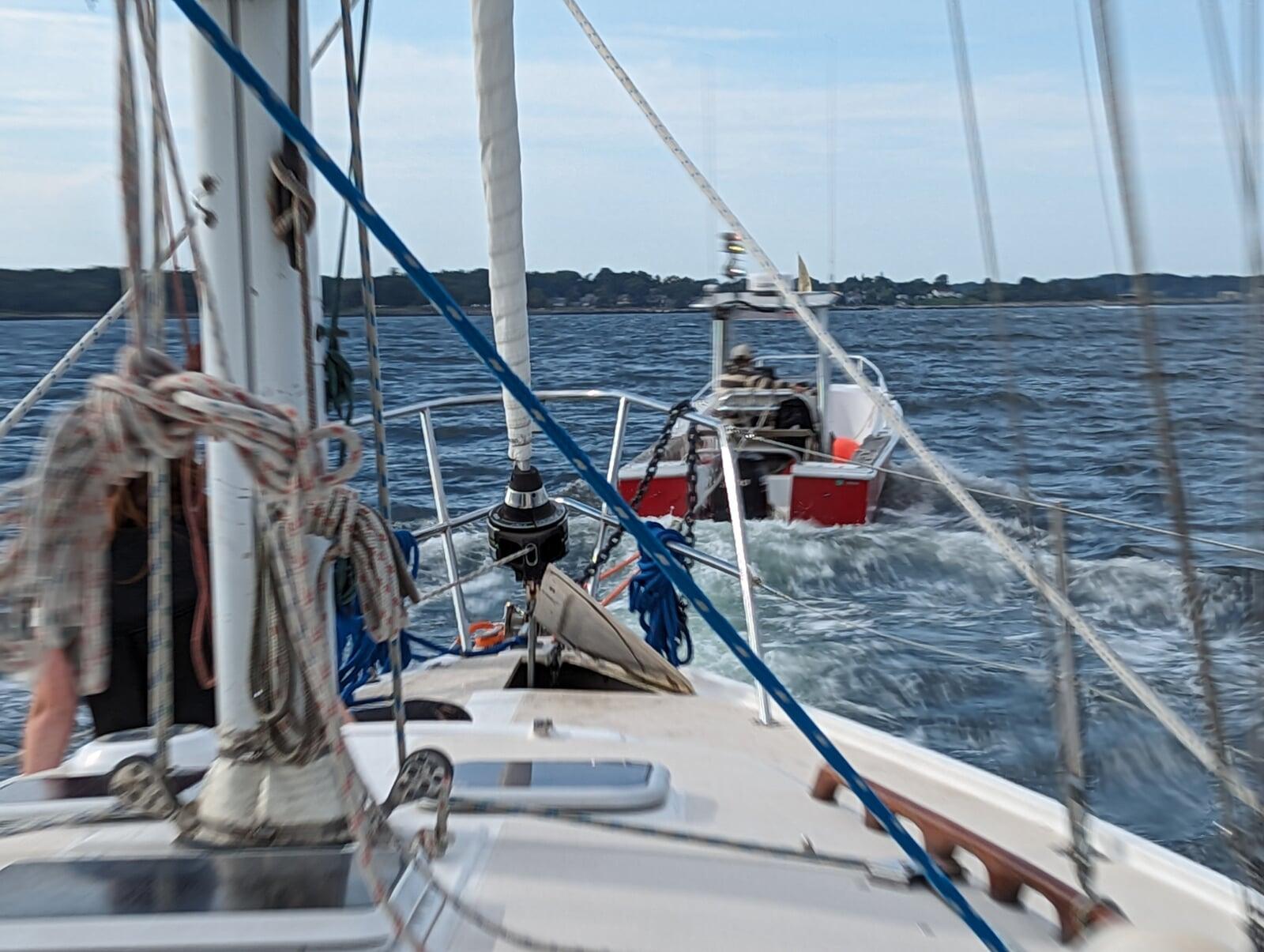Your anchor can be a lifeline keeping your boat safe when things go wrong.

Labor Day weekend is a time when we do an annual sail because of the long weekend. It seems, though, that on every Labor Day sail something goes awry.
Our latest Labor Day sail had a few issues/challenges that we'll post in a later blog. However, a "wake-up" call came late in the day just outside the mouth of Portsmouth, NH harbor. That reminder is: always be sure that you can drop your anchor at a moments notice.
First, I was on a friend's boat. Her boat is well maintained and she is very safety conscious. Her anchor roller was pretty bent up (she purchased the boat this way) so there was no way to keep an anchor on the roller. There were other issues requiring work that had been more pressing, so the anchor roller was low on the priority list.
Just as we were outside Portsmouth dropping our sails, we went to start the engine. It ran for a bit and then stopped. We started it again, and again, it ran for a bit and then stopped. Then my friend yelled that she couldn't get it into neutral to start it again.
I rushed below to check the transmission linkage. She went to the bow and started to deploy the anchor that was (what we thought) neatly stowed.
We were near Kitt's Rock and getting pushed/blown towards it. I got a wrench on the shifter at the transmission and got it into neutral. I went above, started the engine and as soon as I put it into gear, I could feel the engine grab and stop. We either had a transmission problem or we fouled the prop. (note: we had a scope on board that was waterproof; we later lowered it over and confirmed we fouled the prop.)
I ran forward to help with the anchor. We were trying to untangle the mess of rode that had been neatly put into a bag; it seemed like forever to get enough rode cleaned to drop the anchor while I watched how close the rocks were. We were able to clean about 90 feet of rode to drop the anchor. The anchor hit bottom and, fortunately, grabbed and held. We cleated it off and worked on cleaning the rest of the rode so we could add scope. We added more scope (it was pretty wavy) and once we were held fast (in a pretty busy area on a very busy weekend), we took a breath.
We called TowBoatUS and they got to us and towed us in (a story for another blog; the current at this time was ripping fast. Portsmouth is known for its challenging current and we lost our slack-tide window). By the way, that guy (Brian) was a rock star in getting us towed in while we were towing a dinghy, fighting a nasty current, managing a bridge raise, and parking us between two other boats. He also arranged a diver to free our prop since we didn't have diving gear. We owe you a beer, my friend.
So, the lesson learned here is to make sure that you can drop anchor at a moment's notice. It could be the difference between an "issue" and a catastrophe. I also suggest you try it to make sure your rode pays out OK. Those minutes untangling a mess is a real heart racer!
We did re-pack the anchor rode and flaked it instead of coiling it. This is similar to how you pack the rode for a drogue; flaking is laying the line in and going from side to side versus in a circle when packing it. It should pay out easily when deployed. We'll be testing this just to make sure so that next time (and there's always a next time!) we can drop anchor fast when needed. And, of course, we need to address that anchor roller...
So test that you can drop your anchor quickly. I also suggest that you have a way to secure your anchor when on the roller so it doesn't slip and bang your bow (that happened to me just after getting the bow gelcoat fixed. Ugh!) I put a shackle connected to a rope secured to the boat that could easily be released when necessary. I found that faster than having to untie a line before dropping the anchor.
I hope you found this helpful. Let me know if I missed anything by commenting below.
Happy and Safe Boating! -- Rich
